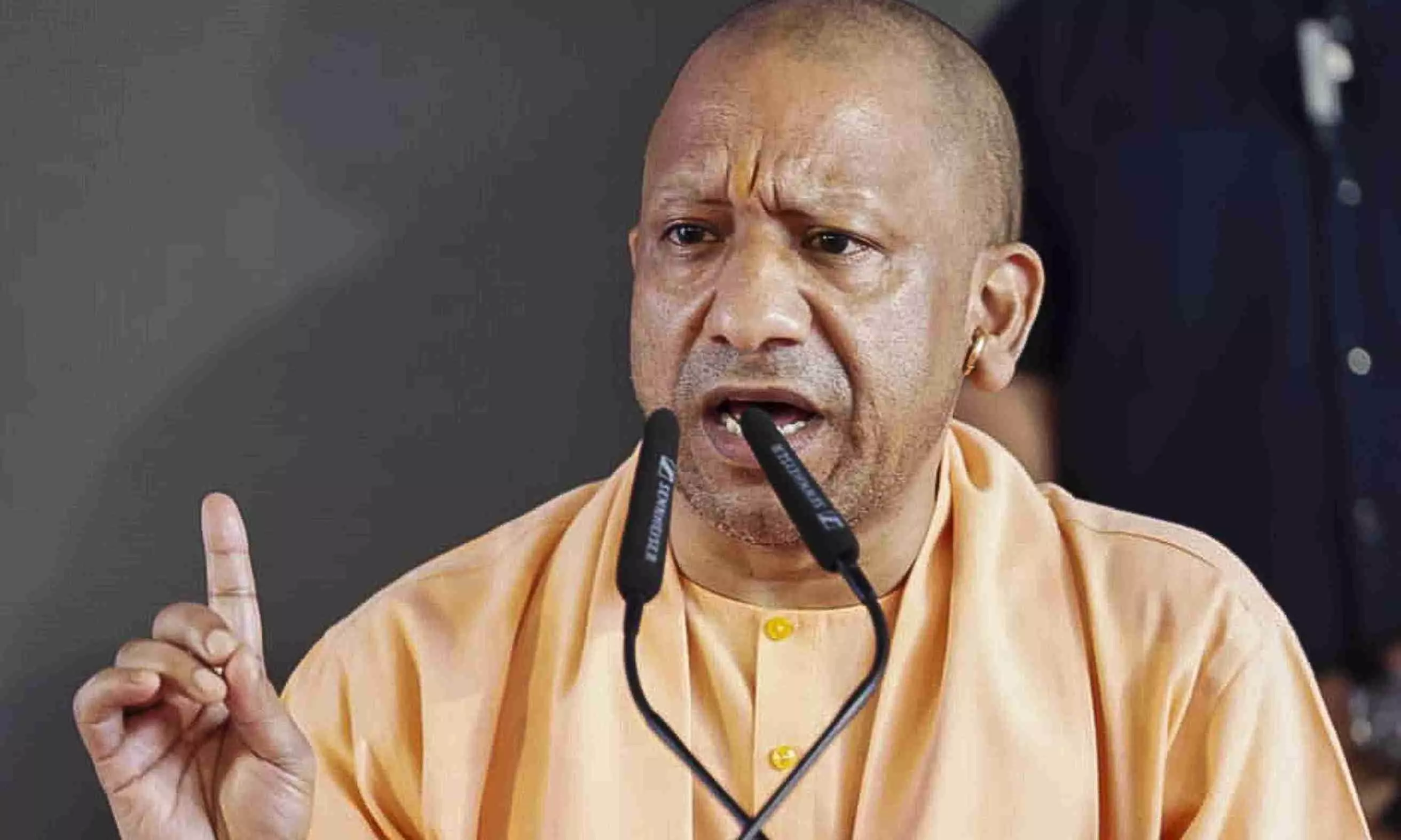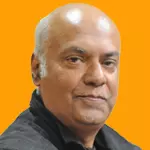
- Home
- India
- World
- Premium
- THE FEDERAL SPECIAL
- Analysis
- States
- Perspective
- Videos
- Sports
- Education
- Entertainment
- Elections
- Features
- Health
- Business
- Series
- In memoriam: Sheikh Mujibur Rahman
- Bishnoi's Men
- NEET TANGLE
- Economy Series
- Earth Day
- Kashmir’s Frozen Turbulence
- India@75
- The legend of Ramjanmabhoomi
- Liberalisation@30
- How to tame a dragon
- Celebrating biodiversity
- Farm Matters
- 50 days of solitude
- Bringing Migrants Home
- Budget 2020
- Jharkhand Votes
- The Federal Investigates
- The Federal Impact
- Vanishing Sand
- Gandhi @ 150
- Andhra Today
- Field report
- Operation Gulmarg
- Pandemic @1 Mn in India
- The Federal Year-End
- The Zero Year
- Science
- Brand studio
- Newsletter
- Elections 2024
- Events
- Home
- IndiaIndia
- World
- Analysis
- StatesStates
- PerspectivePerspective
- VideosVideos
- Sports
- Education
- Entertainment
- ElectionsElections
- Features
- Health
- BusinessBusiness
- Premium
- Loading...
Premium - Events

Rarely do politicians make two simultaneous moves, as the feisty Yogi Adityanath is doing in India’s most crucial political state
If what is happening in Uttar Pradesh this week is any indication, politics is set to take a completely sinister turn. After all, politicians rarely practise communalism and casteism simultaneously, as it is now being done in India’s most populous and politically important state.
On September 21, the UP government issued a 10-point directive banning caste-based political rallies, the public display of caste names on vehicles and signboards, and the mention of caste in most police records.
The order aims to “eliminate caste-based discrimination” and is based on an Allahabad High Court judgment delivered on September 16. The high court’s directions, however, came in a case that had nothing to do with caste discrimination — it was a plea by an alleged liquor smuggler seeking to have the criminal case against him dropped.
While downplaying caste as a marker would be considered a progressive idea, the sting lay in the tail. The order prohibiting public displays of caste identity had a very significant caveat — it imposed a complete ban on caste-based political rallies across the state, stating that they promote social conflict and are a threat to “public order” and “national unity”.
Also read: Why did Uttar Pradesh's Yogi govt ban caste rallies? | Capital Beat
The “I Love Muhammad” controversy
Simultaneously, about 90 km away from Lucknow, in Kanpur, another storm was brewing — a government crackdown on Muslims publicly professing their love for the Prophet.
The controversy began on September 4 during the Barawafat (Eid-e-Milad-un-Nabi) procession in Rawatpur, Kanpur. A group put up an “I Love Muhammad” banner along the procession route. This led to objections from local Hindu groups, who claimed that a “new tradition” was being introduced in a space traditionally used for Barawafat celebrations.
The police intervened. According to DCP Dinesh Tripathi, the government’s rules prohibit the introduction of new customs into religious processions. While some people had removed the traditional tent and placed a new one along with the banner, police restored the tent and signage to the traditional location. No FIR was filed specifically for the banner, Tripathi clarified.
However, both Hindu and Muslim groups accused each other of tearing up posters during the incident, creating confusion despite police mediation.
Also read: UP govt bans caste-based rallies, mentions in police records
Caste and religion
On September 9, Kanpur police registered cases against 24 people — nine named and 15 unknown — for allegedly introducing a new custom during the Barawafat procession and “disturbing communal harmony”. The case cited the removal of the traditional tent and placement of the banner at a new site.
The controversy gained wider attention after AIMIM chief Asaduddin Owaisi shared a post on September 15, asserting that saying “I Love Muhammad” was not a crime. He criticised the police action and tagged Kanpur police, sparking a broader debate.
Since then, the “I Love Muhammad” controversy, which began in Kanpur, has sparked protests and processions by the Muslim community across other parts of Uttar Pradesh, and other states, including Uttarakhand, Telangana, and Maharashtra. Cities such as Unnao, Bareilly, Kaushambi, Lucknow, Maharajganj, Kashipur, and Hyderabad have witnessed rallies and street demonstrations, some leading to clashes with police.
“The Yogi Adityanath government has failed to deliver on all fronts since he came to power in 2017. By mobilising caste and religion, it is a futile attempt to make something out of a desperate situation. Hindutva is not working, so any mobilizing is fair game,” says former UP cadre IAS officer, VS Pandey, who knows the innards of the system.
Also read: Akhilesh slams BJP over Kanpur case, says 'party working like a gang'
What the order says on caste
When caste is the main mobilizer of politics in the state and the country at large, to ban caste rallies is ridiculous. To expect Akhilesh Yadav or Mayawati not to hold caste rallies is being unreal, he says. “If politicians don’t hold caste rallies, what else will they do,” queries Pandey.
In a major procedural change for law enforcement, the UP order bars the mention of an accused person’s caste in most police records, including first information reports (FIRs), recovery memos and arrest memos. It directs the caste column for the accused to be deleted from the central Crime and Criminal Tracking Network and Systems crime portal and for the mother’s name of the accused to be recorded along with the father’s.
The only exception is for cases where there is a legal necessity to record caste, such as those filed under the Scheduled Castes and Scheduled Tribes (Prevention of Atrocities) Act.
The order calls for strict monitoring of social media to curb messages that glorify or denigrate any caste and mandates “strict action” against those who spread caste-based hatred online.
A “legal fallacy”
The government’s directive is a direct consequence of the Allahabad High Court’s judgment in Praveen Chetri v State of UP & Another, a criminal matter that had come up before Justice Vinod Diwakar. The petitioner, Chetri, was arrested in April 2023 for allegedly smuggling illicit liquor. He had approached the high court seeking to have the criminal proceedings against him quashed.
While examining the case files, Justice Diwakar noted that the police had recorded the caste of each of the accused — ‘Mali’, ‘Pahadi Rajput’, ‘Thakur’, and ‘Brahmin’ — in the FIR and seizure memo. Finding this practice “regressive” and “resistant to the idea of a progressive, transformed, developed, modern, and unified India”, the court asked the Director General of Police (DGP) of Uttar Pradesh to submit a personal affidavit justifying the “requirement and relevance of mentioning the caste of a suspect”.
Also read: Mayawati gears up for mega rally after 9 years. Is a comeback plan in the offing?
The court ultimately dismissed the petition, finding that a prima-facie case existed against him. However, Justice Diwakar used the opportunity to address the larger issue of casteism that his query to the DGP had raised.
He criticised the DGP’s justification that mentioning caste was a long-standing practice for identification, calling it a “legal fallacy” when modern tools like Aadhaar cards, mobile cameras and fingerprints, among others, are available.
Caste thorn in BJP flesh
“The immediate justification for the UP-government’s order on castes is a bit difficult to fathom. It is not as if the Yogi government was about to do a caste survey, as states are not entitled to do a caste census. Or, is it a move to deflect from an impending opposition party move in the state,” wondered political analyst Amitabh Tewari.
Political sources say that, ultimately, it was caste that trumped Hindutva in UP, reducing BJP numbers in the 2024 Lok Sabha, and is a constant bugbear in the side of the saffron party, which seeks to unite all groups under the Hindutva umbrella.
Others suggest that Yogi has become too identified with the Thakurs in the state and this move will help identify him as a caste-neutral politician in the run up to the UP elections slated for 2027.
Either way, the road ahead looks testy, as both caste and communalism are rocky roads at their best.
Also read: Amid changing political landscape, can Maya's BSP reclaim lost ground?
Appeal from Imam
In Bareilly, Uttar Pradesh, the Imam of Jama Masjid, Mufti Khurshid Alam, appealed to members of the Muslim community after last week’s Friday prayers to display “I Love Muhammad” posters on the doors of their homes.
“Affection for the Prophet is a part of our faith, and it should be well known to the world. People are already expressing their love towards the Prophet, but it should be displayed by all means,” he added.
Hopefully, the two agitations will be contained within the state’s boundaries, because history tells us that once it goes beyond that realm, its ramifications can hardly be called to be conducive.
(The Federal seeks to present views and opinions from all sides of the spectrum. The information, ideas or opinions in the articles are of the author and do not necessarily reflect the views of The Federal)


